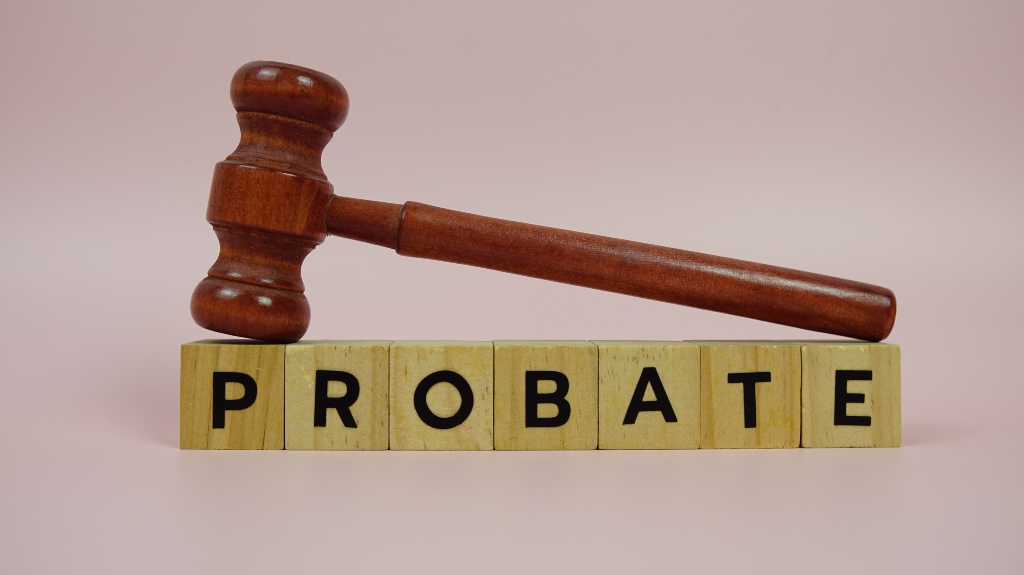
Probate is the legal process to settle an estate after the owner dies. All estates worth $100,000 or more are probated unless accounts meet certain standards or everything belonging to the owner is covered by a trust.
Through the probate process, a person’s property is accounted for and distributed to their heirs. It is a public process, so anyone who is interested may review records of the proceedings, including heirs’ names.
What Items are Not Subject to Probate?
Avoiding probate can be financially beneficial to heirs. Quickly transferring accounts to beneficiaries and survivors avoids paying an executor and additional attorneys fees. This also reduces the total amount of the estate in probate, potentially putting it under the $100,000 small estate threshold.
Accounts that are jointly held and property that is jointly owned with right of survivorship are not subject to probate as long as the co-owner is still living. Under these circumstances the account or property ownership is automatically transferred to the surviving partner. Accounts, such as retirement funds, are turned over to beneficiaries without probate.
Steps in the Probate Process
In Illinois, probate can be 10-18 months long. Costs of probate depend on the complexity of the case. If an estate is valued at less than $100,000, a small estate affidavit is filed, avoiding probate.
Straightforward probate cases generally take the following steps:
- When a person dies, the executor of their estate files their will in probate court and petitions to open the case. Executors are paid by the hour rather than by a percentage of the estate.
- The court decides where the will should be probated. It’s simple if the individual had one home and it was their primary residence, but the process can get complicated for owners of multiple homes.
- Heirs mentioned in the will are notified.
- The executor develops a list of creditors and publishes news of the person’s death so any others can come forward. Illinois has a six-month deadline on creditor claims.
- An inventory and appraisal is made by the executor (in conjunction with necessary appraisal experts) to value the estate contents.
- The executor pays valid creditor claims from the estate as well as any applicable taxes. If the surviving spouse and/or minor children depend on the accounts in question the executor can provide day-to-day expense money from the estate.
- Property and possessions not designated for a specific heir or purpose (such as charitable donation) are sold and the revenue added to the general estate funds.
- Heirs are given the proceeds of the estate.
- The executor files a report with the court and asks for a discharge.
If a person dies without a will, the probate system appoints an executor of the estate. The intestate (no will) process is often longer and costlier, as the executor has more work to do in identifying heirs and locating and paying creditors.

Pros and Cons of Probate
A frequent complaint about the probate process is that it is public. That means anyone who learns of the individual’s death can visit the court and read through records of the estate. Probate is an expensive process, as an attorney is often needed to guide the executor throughout. Challenges to the will can result in a longer and more expensive process but once it’s over there can be no further claims. The finality of the probate process is a positive aspect.
Illinois does not tax for estates valued at less than $4 million, and heirs do not pay inheritance taxes on the funds or items they receive from an estate.
Consult an Estate Planning Expert
Anyone with an estate of $100,000 or more should have a will to ensure that their heirs receive the maximum benefit of their estate. An experienced estate attorney can also advise on specific ways to avoid the cost and time involved in probate. These strategies include:
- Creating a trust to shield assets;
- Designating beneficiaries and “transfer on death” contingencies so that accounts go directly to heirs, bypassing probate, and
- Putting assets in joint ownership that transfers to the survivor.
Consult with Illinois probate experts at Legacy & Life Law Firm for estate planning aimed at reducing or eliminating the need for probate. With the right plan, your estate may shortcut the time and expense of probate through a strategic arrangement of trusts, beneficiaries.
